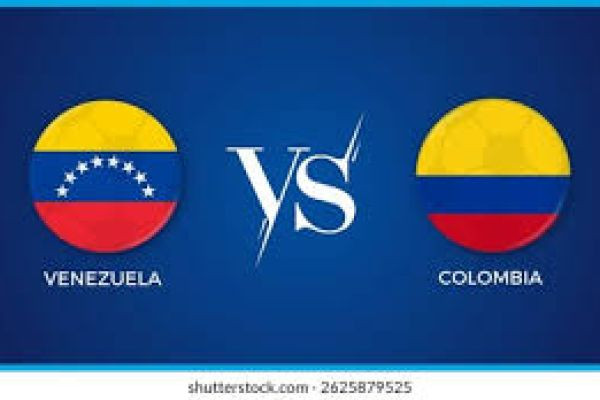The football rivalry between Venezuela and Colombia is a fascinating and complex duel that has evolved dramatically over time. While not a classic powerhouse clash like Brazil vs. Argentina, this matchup is a powerful reflection of national identity, shared history, and the relentless pursuit of footballing recognition. The "Clásico de la Frontera" (The Border Classic), as it is known, has transformed from a one-sided affair into one of the most unpredictable and emotionally charged contests in CONMEBOL.
A History of Disparity
For decades, the narrative of Colombia vs. Venezuela on the football pitch was one of predictable dominance. Colombia, with a richer footballing history and periods of producing world-class talent, consistently held the upper hand. In the 1990s, Colombia's golden generation, led by iconic players like Carlos "El Pibe" Valderrama and Faustino Asprilla, treated matches against Venezuela as a formality. Scorelines like a 5-0 thrashing in the 1993 Copa América were not uncommon, highlighting the vast disparity in quality. Venezuela, often seen as the "Cinderella" of South American football, was the team that was almost always the first to be eliminated from major tournaments. These matches were a chance for Venezuelans to test themselves against their more established neighbor, while for Colombians, they were a guaranteed three points.
The Rise of La Vinotinto
The 21st century marked a pivotal turning point in this rivalry. Under new management and with a newfound focus on youth development, Venezuelan football began a slow but significant transformation. A new generation of players, including the legendary midfielder Juan Arango, began to ply their trade in European leagues, bringing a higher level of professionalism and tactical awareness back to the national team. . La Vinotinto, once a perennial underdog, started to compete consistently with the continent's best. The matches against Colombia were no longer a foregone conclusion but rather a crucial barometer of this progress. The phrase "Clásico de la Frontera" began to take on a new, more serious meaning, reflecting a genuine, hard-fought rivalry. This added intensity was fueled by a complex socio-political dynamic, including the large Venezuelan diaspora in Colombia, which creates a uniquely emotional atmosphere whenever the two teams meet.
Defining Moments and Modern Battles
The modern history of the rivalry is defined by a series of tense, hard-fought encounters. One of the most significant moments came during the 2007 Copa América, which Venezuela hosted. In a historic group-stage match, a defiant Vinotinto side defeated Colombia 1-0 in front of a passionate home crowd. This victory was a landmark achievement, a psychological breakthrough that fueled the belief that Venezuela could not only compete but win against its neighbors.
In recent World Cup qualifiers, the rivalry has been marked by defensive battles. The 0-0 draws in both the 2018 and 2026 qualifying campaigns are perfect examples. In these matches, Colombia's attack, featuring stars like James Rodríguez and Radamel Falcao, was consistently frustrated by a disciplined and unyielding Venezuelan defense. While the score was nil-nil, the significance was immense. Venezuela's gritty performances were seen as moral victories, symbolizing their ability to stand toe-to-toe with one of the continent's best. These games are no longer about spectacular goals and free-flowing football; they are about sheer resilience, tactical discipline, and the burning desire to not lose to your closest neighbor.
Beyond the Pitch: A Rivalry Forged by Shared Identity
The intensity of the Venezuela-Colombia rivalry extends far beyond the ninety minutes on the pitch. It is a rivalry deeply rooted in a shared history and a complex socio-political reality. Historically, both nations were part of Gran Colombia, a single state founded by the revered figure Simón Bolívar. This shared heritage creates a sense of familial tension—a brotherly quarrel that is all the more intense because of the close bond. In recent years, the rivalry has been further influenced by the mass migration of Venezuelans to Colombia. This demographic shift has added a powerful emotional layer to the matches. For Venezuelan migrants, watching their national team play in Colombia is a poignant moment, a chance to cheer for their homeland in a new one. For both sets of fans, the game becomes a temporary but fierce proxy for national identity and pride, reflecting the lived experiences of a shared border and an interwoven destiny.
The Future of the Border Classic
The rivalry between Venezuela and Colombia has come a long way. It is a story of evolution, from a clear-cut hierarchy to a genuine contest. Venezuela’s ascent has not only brought a new level of competition to the fixture but has also enriched the CONMEBOL qualifying landscape as a whole. The matches are no longer just games; they are cultural events that capture the imagination of millions on both sides of the border. As both nations continue to produce new talent and strive for a place on the world stage, the “Clásico de la Frontera” promises to remain a compelling and fiercely contested chapter in the ongoing saga of South American football.








